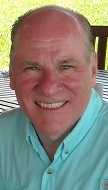 Anthony Gorody, Ph.D., PG, will present the session, “A Stable Isotope Ranking Method Useful for Addressing Bradenhead Gas Sources in Legacy Wells, SW Weld County, Colorado” at NGWA’s Groundwater and Oil and Gas Development: Improved Management Practices for Groundwater Protection and Water Supply workshop, which is taking place March 4-5 in San Antonio, Texas.
Anthony Gorody, Ph.D., PG, will present the session, “A Stable Isotope Ranking Method Useful for Addressing Bradenhead Gas Sources in Legacy Wells, SW Weld County, Colorado” at NGWA’s Groundwater and Oil and Gas Development: Improved Management Practices for Groundwater Protection and Water Supply workshop, which is taking place March 4-5 in San Antonio, Texas.
Gorody of Universal Geoscience Consulting Inc. in Houston, Texas, is also a program adviser to the workshop. He has more than 30 years of diverse international and domestic experience related to the exploration and development of fossil fuels. He provides clients with consulting and training services that rely on a multidisciplinary approach to collect, analyze, and interpret environmental data.
Gorody previews his session and what he is looking forward to learning most at the workshop.
NGWA: What are you looking forward to sharing in your presentation?
Gorody: One of the biggest challenges facing managers who need to integrate multiple disciplines in their risk assessment and management activities is effective communication. For example, one essential tool used to interpret the source of bradenhead (casinghead) gas is founded on the principles of hydrocarbon geochemistry. It is not reasonable to expect drilling engineers to be conversant in chemistry, so sometimes it is best to communicate by developing a mutually acceptable risk management vocabulary.
My presentation suggests such a method by numerically ranking how similar the hydrocarbon composition of a bradenhead gas sample is to the composition of hydrocarbons sampled from the underlying production interval. For example, a ranking of 8/8 indicates all eight essential geochemical parameters measured in a bradenhead sample match those of a corresponding bradenhead sample. Now say that after isolating any production gas at depth with a remedial cement job there is still pressure buildup in the bradenhead. If resampling the bradenhead results in a ranking of 2/8, then the engineer will know that the production gas interval has been successfully isolated but that there is a secondary gas source in the well above the seal.
NGWA: What are you looking forward to learning more about at the workshop?
Gorody: What I enjoy most about these workshops is the opportunity to visit with my colleagues on the organizing committee and to network with participants. I have never left these workshops without new insights and related contacts that helped me improve the daily groundwater monitoring and mitigation services I provide my clients.
NGWA: Why should folks attend the workshop?
Gorody: Unconventional oil and gas resource development operations have now become intimately linked with groundwater protection and water resource management activities. Associate tasks are multidisciplinary and require good communication and coordination between teams dedicated to otherwise independent activities. Synergy is essential to successfully manage a broad scope of operational and regulatory requirements and competing stakeholder interests. For the first time, this year’s workshop will explore such synergies.
Since the inception of NGWA’s biannual workshops, the primary objective has been to present the latest research, case histories, and suggested best practices recommended for monitoring and protecting groundwater. The traditional format has been to convene workshop participants following a series of presentations to identify technology gaps, needs for further improvement, and standards for best practices.
This year, the overall format will be the same, but the scope will be more diverse. Presentations and workshop discussions will be grouped into three broad categories: oil and gas production/injection well risk assessment and management methods (source contaminant mitigation); groundwater monitoring and sampling (receptor contaminant monitoring and mitigation); and groundwater resource management and protection. Anyone attending who is involved with unconventional oil and gas development is likely to benefit from this fresh and integrated perspective.
___________________________
NGWA thanks Gorody for his time in answering these questions as well as in presenting and serving as a program adviser at the Groundwater and Oil and Gas Development: Improved Management Practices for Groundwater Protection and Water Supply workshop.